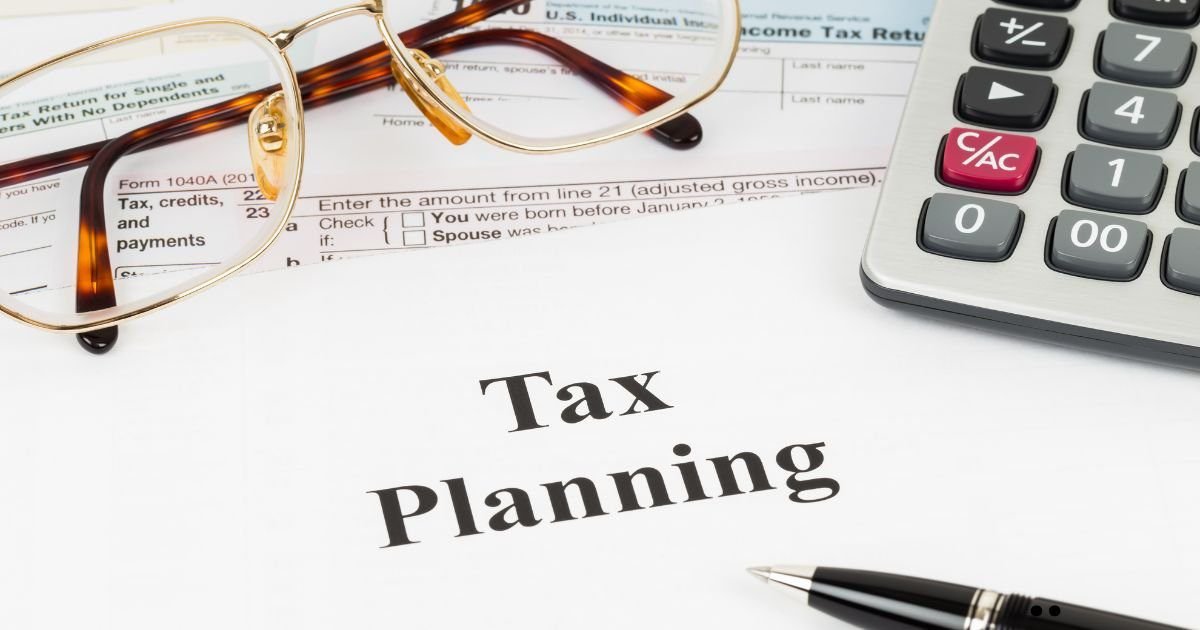Luxury Tax Planning is a crucial strategy for individuals and businesses with high-value assets and significant incomes. As the tax landscape evolves, those who own luxury goods, real estate, and other high-end possessions must take steps to minimize their tax liabilities. Effective Luxury Tax Planning allows individuals to protect their wealth while navigating the complexities of tax codes. Whether you’re looking to reduce property taxes, manage capital gains, or structure income more efficiently, understanding the various tax strategies is vital. By employing proper planning, wealthy individuals can achieve substantial savings and ensure long-term financial security for themselves and their heirs.
Understanding Luxury Tax Planning
Luxury Tax Planning involves strategically managing the taxes associated with high-value assets and high-income earners. This specialized tax planning focuses on minimizing the tax burden for individuals who own luxury goods, real estate, or other high-value possessions. It includes various techniques such as income splitting, deferring taxes, and leveraging tax-advantaged investment accounts. The goal of Luxury Tax Planning is to protect wealth, reduce estate and income taxes, and ensure that luxury assets are preserved for future generations. Proper planning helps individuals navigate complex tax codes and make informed decisions that can significantly reduce their overall tax liability.
Key Components of Luxury Tax Planning
The key components of Luxury Tax Planning focus on minimizing taxes for individuals with high-value assets and significant income. This includes income management strategies like income splitting, which helps distribute taxable income among family members. Tax-deferred investment opportunities, such as retirement accounts, allow wealthy individuals to reduce their immediate tax liabilities while growing their wealth. Estate planning plays a crucial role by using trusts and gifting strategies to lower estate taxes. Additionally, Luxury Tax Planning involves tax-efficient management of luxury assets like real estate, vehicles, and fine art, ensuring that taxes on these assets are minimized.
Strategies for Luxury Tax Planning for High-Income Earners
High-income earners face unique challenges when it comes to Luxury Tax Planning. Effective tax strategies can significantly reduce their overall tax liability, ensuring that their wealth is preserved for future generations. Below are some essential strategies:
Income Splitting and Family Tax Planning
One effective strategy is income splitting, which involves distributing income across family members in lower tax brackets. This helps reduce the overall tax burden of the primary earner. By setting up family trusts or gifting assets to relatives, high-income individuals can lower their taxable income while benefiting loved ones.
Tax-Deferred Investments
High-income earners can benefit from tax-deferred investment accounts like IRAs or 401(k)s. These accounts allow wealth to grow without being taxed until withdrawals are made, thus deferring tax payments to a later date when the individual may be in a lower tax bracket.
These strategies, when implemented correctly, can result in significant tax savings while allowing individuals to retain control over their wealth.
Luxury Real Estate Tax Planning
Luxury Real Estate tax planning is essential for high-net-worth individuals who own valuable properties. Property taxes on luxury homes can be substantial, so understanding how to minimize these taxes is critical. One strategy is to appeal property tax assessments to ensure they accurately reflect the property’s value. Another approach is to leverage tax deductions through depreciation, especially for rental or investment properties. Additionally, structuring ownership through trusts or LLCs can provide tax benefits and protect assets. Luxury Real Estate tax planning helps reduce liabilities while preserving the value of high-end properties for future generations.
Must Read: Faqlogin.com Home Improvement: Increasing Home Value
Estate Planning for High-Value Assets
Estate planning for high-value assets is a crucial aspect of Luxury Tax Planning. As wealth increases, so does the potential for significant estate taxes. Proper estate planning ensures that luxury assets, such as fine art, real estate, and expensive collections, are passed on efficiently to heirs while minimizing tax exposure. One common strategy is the establishment of irrevocable trusts, which remove assets from the taxable estate and provide greater control over the distribution. Gifting strategies can also be used to reduce the size of the estate by giving away assets to family members or charitable organizations, taking advantage of annual gift exclusions.
Additionally, life insurance policies can be used to offset estate taxes, preserving more of the estate’s value. Well-structured estate planning ensures that high-value assets are transferred according to the owner’s wishes with minimal tax impact.
Taxation on Luxury Goods and High-Value Assets
- Luxury Goods such as yachts, private jets, and high-end vehicles are subject to significant taxes in many regions.
- Sales tax, excise tax, and import duties are common forms of taxation on luxury goods.
- Luxury Tax Planning involves purchasing luxury items in tax-friendly jurisdictions to minimize these taxes.
- Capital gains tax applies to the sale of high-value assets like luxury real estate, fine art, and collectibles.
- Certain high-value assets may qualify for tax deductions through depreciation, reducing overall tax liability.
- International buyers may face different tax rates and regulations when purchasing luxury goods abroad.
- Proper planning can help high-net-worth individuals avoid excessive taxes on these assets, preserving their wealth.
Tax Planning for Businesses in the Luxury Industry
Tax planning for businesses in the Luxury Industry involves navigating complex regulations to minimize tax liabilities. Companies that manufacture or sell luxury goods can benefit from strategic tax planning to manage high income and significant asset values. Key strategies include utilizing tax credits for research and development, optimizing the supply chain to take advantage of favorable tax rates, and employing transfer pricing techniques for international operations. Additionally, businesses may structure their operations to benefit from lower tax jurisdictions, reducing the overall corporate tax burden. Effective Luxury Tax Planning helps businesses maximize profits while complying with tax laws.
Advanced Tax Strategies for Luxury Asset Owners
For Luxury Asset owners, advanced tax strategies can help preserve wealth while minimizing tax exposure. One key strategy is utilizing tax shelters, such as offshore accounts or trusts, to protect high-value assets from heavy taxation. These shelters allow owners to shield assets like real estate, art, and collectibles from high estate or capital gains taxes. Another effective strategy is engaging in like-kind exchanges, which allow owners to defer capital gains taxes when exchanging one luxury asset for another, such as real estate.
Additionally, luxury asset owners can leverage insurance policies to provide liquidity for paying estate taxes without having to sell valuable assets. Combining these strategies within a comprehensive Luxury Tax Planning approach ensures that high-value assets are protected and transferred efficiently while reducing the tax burden.
The Future of Luxury Tax Planning
The landscape of Luxury Tax Planning is evolving, influenced by economic shifts, policy changes, and emerging market trends. Key developments shaping its future include:
- Digital Luxury Taxation: Governments are increasingly focusing on taxing online sales of high-end digital goods, such as luxury NFTs and virtual assets, to capture revenue from digital luxury markets.
- Environmental Considerations: There’s a growing emphasis on taxing luxury goods based on their environmental impact, encouraging sustainable practices within the luxury industry.
- Global Policy Harmonization: Efforts are underway to standardize luxury tax policies internationally, aiming to reduce tax avoidance strategies and create a more equitable tax environment.
- Impact of Economic Cycles: Economic downturns can lead to increased luxury tax rates as governments seek additional revenue, affecting both businesses and consumers in the luxury market.
- Technological Advancements: The integration of AI and data analytics in tax administration is enhancing compliance and reporting efficiency, influencing how luxury taxes are managed and enforced.
Staying informed about these trends is essential for individuals and businesses engaged in luxury markets to navigate the evolving tax landscape effectively.
Conclusion: Final Thoughts on Luxury Tax Planning
In conclusion, Luxury Tax Planning is essential for high-net-worth individuals and businesses seeking to protect their wealth and minimize tax liabilities. By understanding key strategies such as income splitting, tax deferral, estate planning, and asset protection, individuals can reduce their overall tax burden while preserving their luxury assets. As tax laws evolve and new regulations emerge, it is crucial to stay informed and work with tax professionals to implement the most effective strategies. Proper Luxury Tax Planning ensures that luxury assets are passed on efficiently, securing financial success for future generations.
FAQs About Luxury Tax Planning
- What is Luxury Tax Planning?
Luxury Tax Planning involves strategies designed to minimize taxes on high-value assets such as luxury goods, real estate, and high-income earnings. It helps individuals protect wealth, reduce tax liabilities, and ensure efficient wealth transfer. - How can Luxury Tax Planning benefit high-net-worth individuals?
High-net-worth individuals can benefit from Luxury Tax Planning by using strategies like income splitting, tax deferral, and estate planning to reduce taxes on luxury assets and income, preserving wealth for future generations. - Can I reduce taxes on luxury real estate?
Yes, through strategies like property tax appeals, depreciation deductions for investment properties, and structuring ownership through trusts or LLCs, owners of luxury real estate can minimize tax exposure. - What are the tax implications of buying luxury goods?
Luxury goods are often subject to sales tax, import duties, and excise taxes. Planning purchases in tax-friendly jurisdictions and considering depreciation can help reduce tax liabilities. - How does estate planning fit into Luxury Tax Planning?
Estate planning plays a crucial role in Luxury Tax Planning by using tools like trusts, gifting strategies, and life insurance to reduce estate taxes and ensure a smooth transfer of luxury assets to heirs.
Read More: Death Generator: Unleashing Ultimate Fate in Virtual Worlds
Thanks for visiting Globalexpressinfo.com. Don’t forget to share it on Twitter.






